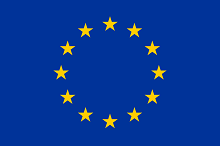Family members of a deceased insured person are entitled to a survivor’s pension if the person from whom the right is derived (the deceased person) met one of the following conditions:
- obtained at least 5 years of insurance period or at least 10 years of pensionable service, or
- met the requirements for the length of pensionable service for acquiring the right to a disability pension or
- was a beneficiary of an old-age pension, an old-age pension for a long-term insured person, an early retirement pension, an early retirement pension due to the bankruptcy of the employer, a disability pension due to partial or complete loss of working capacity or a temporary disability pension or
- was a beneficiary of the right to occupational rehabilitation.
If the death of an insuree or insured person occurred as a result of an accident at work or occupational disease, his or her family members have the right to a survivors’ pension regardless of the length of qualifying periods completed.
The right to a survivors’ pension may not be acquired by a family member of an insured person or pension beneficiary who intentionally caused the death of the insured person or pension beneficiary, and was convicted of this criminal offence by a legally effective judgement to incarceration, and cannot be acquired by a family member of a deceased insuree, insured person or pension beneficiary who intentionally incapacitated himself or herself for work to acquire the right to a survivors’ pension.
A spouse is entitled to a survivors’ pension:
- If they reached 50 years of age by the time of death of their spouse
- If they are younger than 50 years of age, and they suffered a total loss of work capacity before the death of their spouse or within one year after the death of their spouse or
- If, after the death of the spouse, there are one or more children who are entitled to a survivor’s pension, and the surviving spouse performs parental duties towards those children. If, during the term of the right on that basis, a complete loss of working capacity occurs, the right to a survivor’s pension is retained.
If the spouse has not reached the age of 50 by the time of death of their spouse, but has reached the age of 45, he/she entitled to a survivor’s pension when he/she reaches the age of 50.
A spouse who has reached the age of 50 during the term of the right to a survivor’s pension shall retain this right permanently, and if this right expires before the age of 50, but after the age of 45, he or she may regain the right to a survivor’s pension when he or she reaches the age of 50.
An extramarital partner and a former extramarital partner with the right to maintenance shall be entitled to a survivor’s pension if they lived with the insured person or with the pension beneficiary until their death in a joint household for at least three years, or for a shorter period if a joint child was born in an extramarital union.
The extramarital union status is determined in special non-contentious court proceedings initiated due to the acquisition of the right to a survivor’s pension.
A divorced spouse is entitled to a survivor’s pension if he or she has been awarded the right to maintenance by a court decision.
Family members of the deceased formal life partner can exercise the right to a survivor’s pension under the same conditions, and an informal life partner if the partnership lasted at least three years until their death and from the beginning met the conditions prescribed for the validity of the life partnership.
The informal life partnership status is determined in special non-contentious court proceedings initiated in order to determine the existence of an informal life partnership for the purposes of acquiring the right to a survivor’s pension.
A child acquires the right to a survivors’ pension:
- If at the time of the death of the parent, the child is younger than 15 years, and after that age is in periods of unemployment, but only until the age of 18
- If a complete loss of working capacity occurs, until the age at which the child is entitled to a survivors’ pension, then the child is entitled to a survivors’ pension for as long as such loss exists
- If a total loss of work capacity was suffered after the age that provides children with the right to a survivors’ pension, and before the death of the insured person or beneficiary if they were supported by the deceased before their death
- If, at the time of death of the insured person, he or she is a full-time student or starts such education after the death of the insured person, but only until the age of 26.
Children are entitled to this right until the end of regular schooling, but not after they reach 26 years of age. If a child’s regular schooling was interrupted due to illness, the child has the right to a survivors’ pension and may exercise this right for the duration of illness – up to the age of 26 and beyond, but for a period not longer than the time he or she lost due to illness, provided that the child’s regular schooling continued before he or she reached 26 years of age.
A child with the status of a disabled person with remaining working capacity is entitled to a survivor’s pension after the death of his or her parent and does not lose this right by employment, but his or her pension payment is suspended for the duration of the insurance if he or she is employed for more than half-time hours, or starts performing an activity on the basis of which there is a pension insurance obligation.
A child who suffers a complete loss of working capacity during the term of the right to a survivor’s pension, also retains this right as long as there is a complete loss of working capacity and does not lose this right by employment, but the payment of the pension is suspended during the period of insurance if he/she is employed for 3.5 hours a day or more, and during the performance of activities that require compulsory pension insurance.
A parent – father, mother, stepfather, stepmother, life partner of the parent and adoptive parent of a deceased insured person or beneficiary whom the insured person or beneficiary supported until his or her death is entitled to a survivors’ pension:
- If, before the insured person’s or beneficiary’s death, he or she reached the age of 60, or
- If he or she is younger than 60 but experienced a complete loss of working capacity at the time the insured person or the beneficiary died, for as long as such disability lasts.
The following parties will lose their right to a survivors’ pension provided that they get married, or start a consensual union or life partnership/informal life partnership:
- Widow/widower/common-law spouse/life partner/informal life partner, younger than 50 years of age, unless they exercise this right based on their total loss of work capacity
- Children of the insured person, a child that the insured person cared for, brothers, sisters and other parentless children, except the children who are entitled to this right based on the total loss of work capacity, children who are subject to full-time schooling and disabled children with a remaining work capacity determined in accordance with the regulations on occupational rehabilitation and employment of disabled persons.
From 1 January 2023, the widow/widower is allowed to use part of the survivor’s pension with a personal pension (old-age, early retirement or disability pension).
The conditions for using a part of the survivor’s pension are as follows:
– the widow/widower is the only beneficiary of the survivor’s pension
– he/she turned 65 years of age
– his/her total pension from the compulsory pension insurance in the Republic of Croatia does not exceed the amount of 80 actual values of pension (AVPs).
A widow/widower who is not the only beneficiary of the survivor’s pension will also be able to use part of the survivor’s pension if other family members are entitled to it on the basis of a total loss of working capacity or as a child with the status of a disabled person.
The amount of part of the survivor’s pension is set at 27% of the survivor’s pension for one family member. The lowest amount is determined in the amount of three actual values of pension (but not more than 50% of the due survivor’s pension), and the highest amount of a part of the survivor’s pension, if the sum of the old-age, early old-age or disability pension and part of the survivor’s pension is greater than 80 AVPs, it is paid in the amount of the difference up to 80 AVPs.
The use of a part of the survivor’s pension is also adequately enabled for an extramarital partner, a divorced spouse with the right to maintenance, a former extramarital partner with the right to maintenance, a life partner, a former life partner with the right to maintenance, an informal life partner and a former informal life partner with the right to maintenance.
Your right to a survivors’ pension pursuant to international agreements on social insurance
The procedure for obtaining the right to survivors’ pension is initiated by submitting an application to the competent pension insurance holder in the contracting state in which you have residence.
An application submitted in one contracting state shall be deemed as an application submitted in all contracting states in which the deceased insured person has completed insurance periods.
Survivors’ pension will be paid to the surviving family member regardless of the place of his or her residence in any of the contracting states.
1.4. Application for granting the right to survivors’ pension
Annexes to applications for granting the right to foreign pensions (to be completed with the application under no. 1.4) for:






